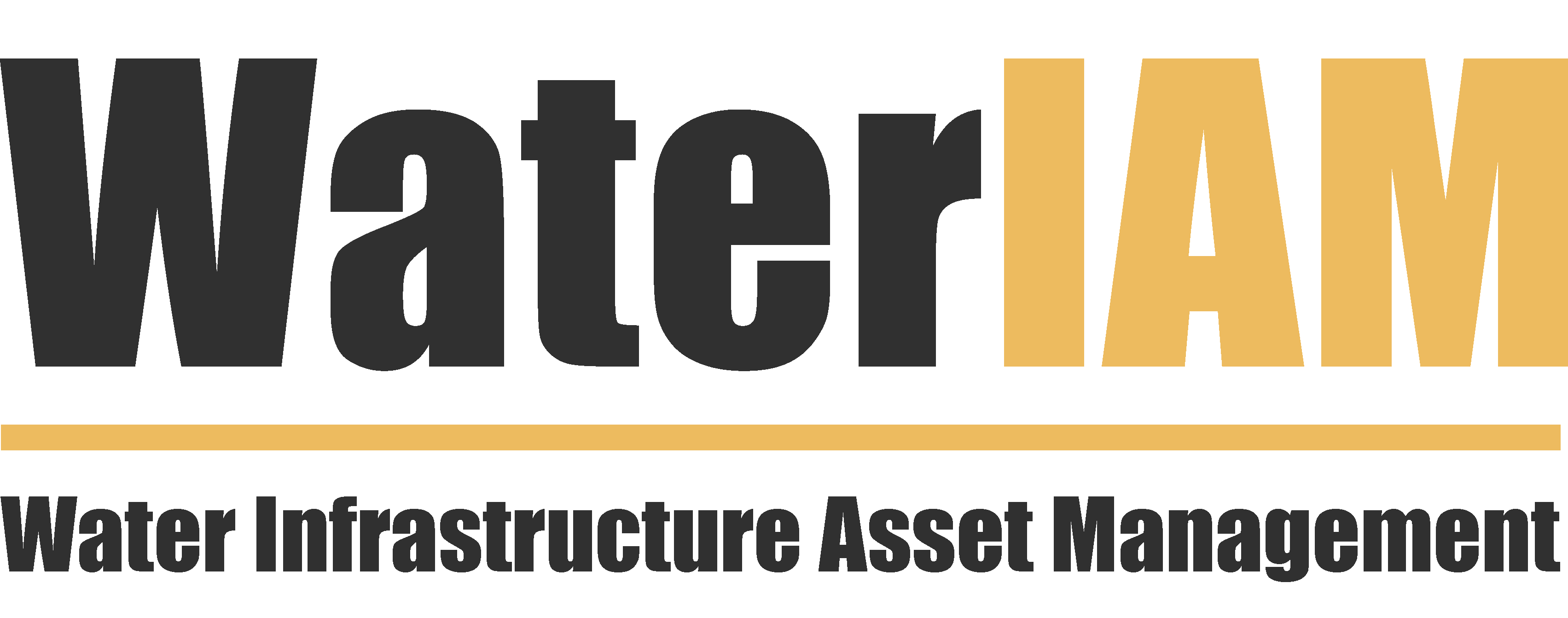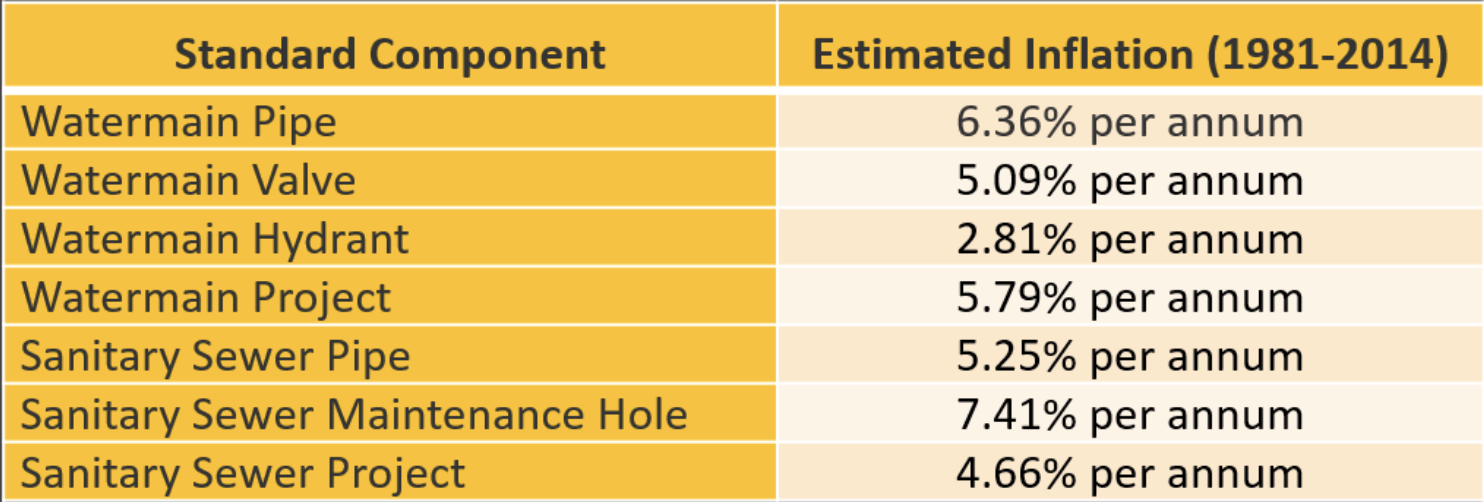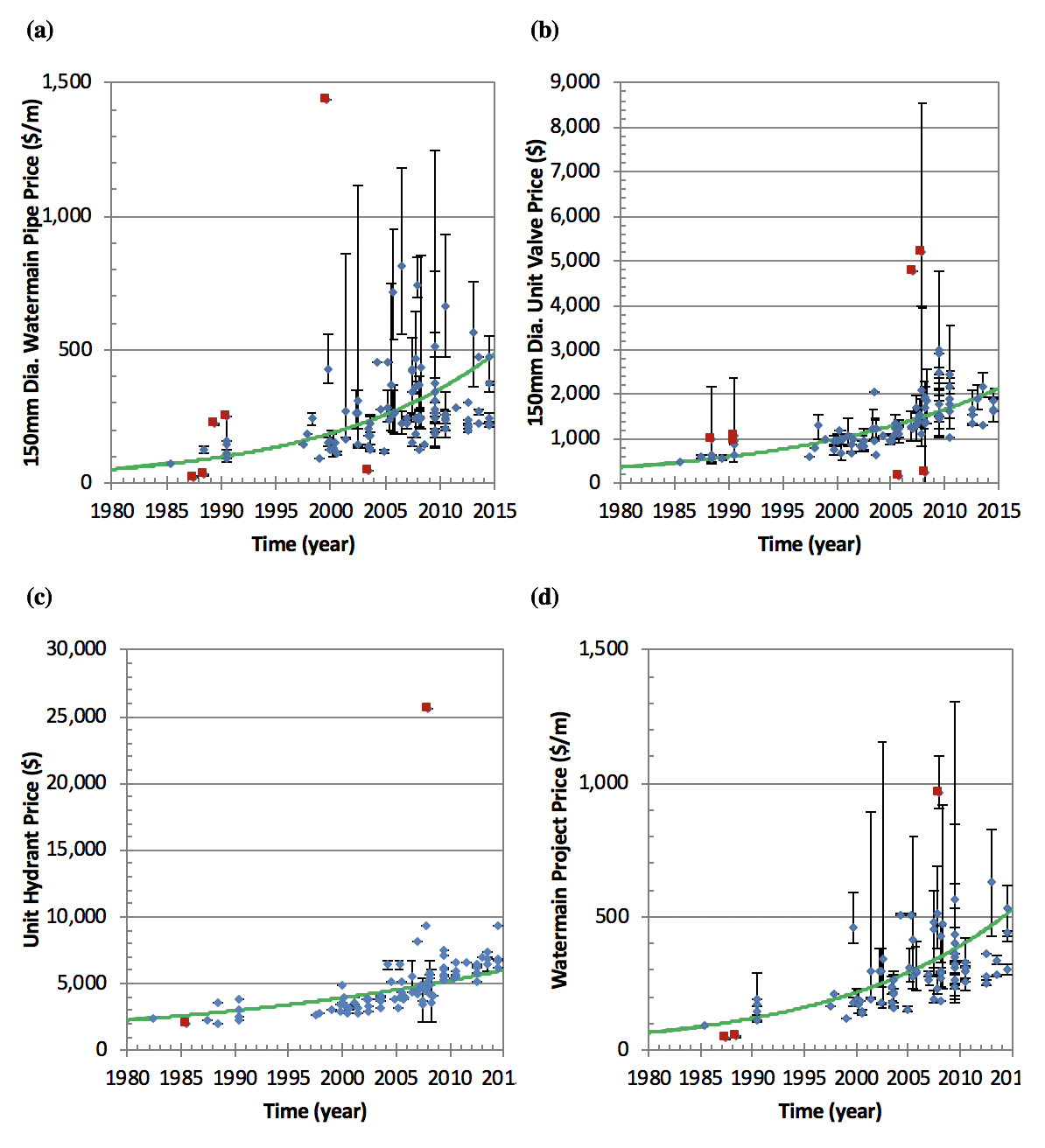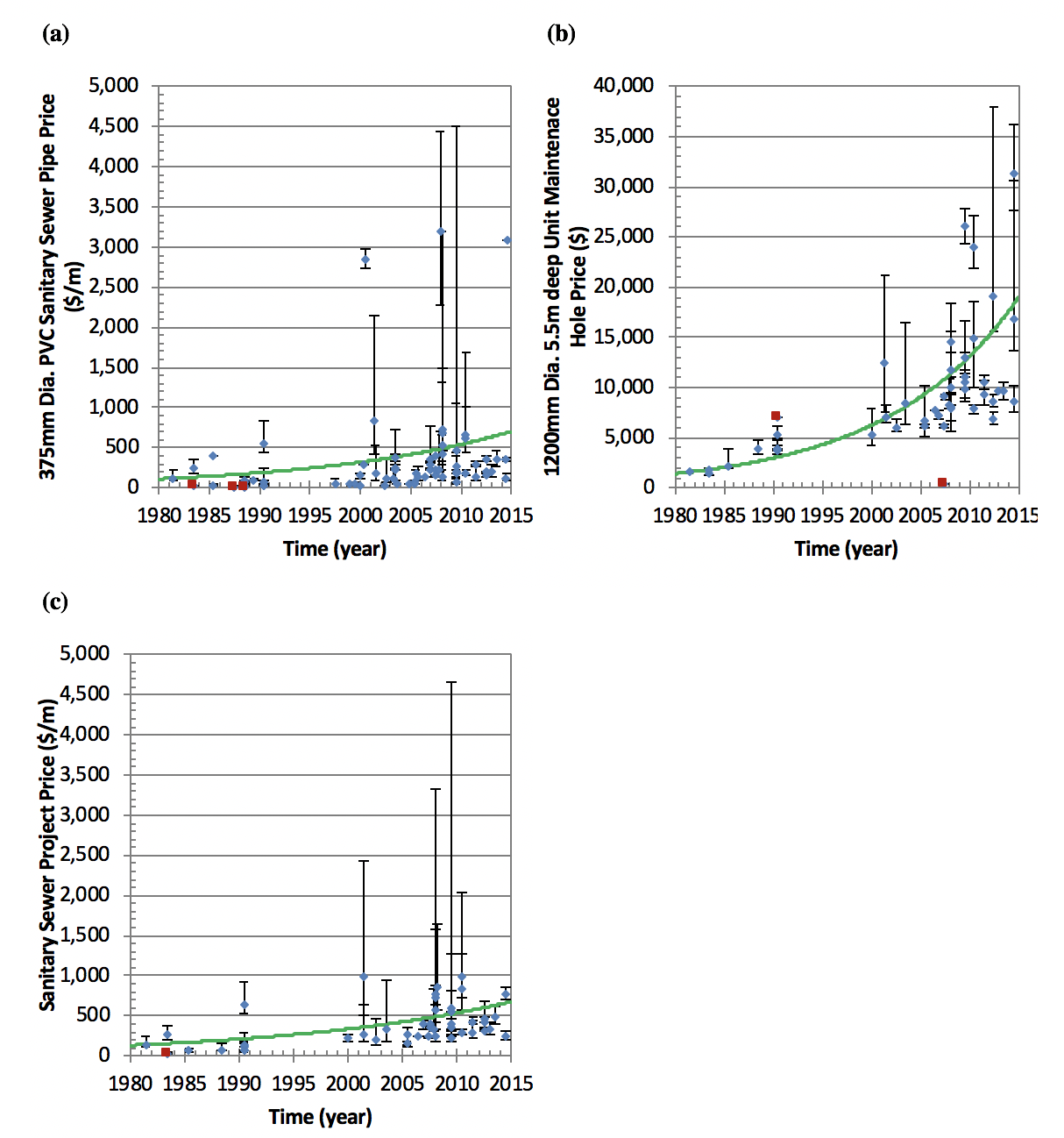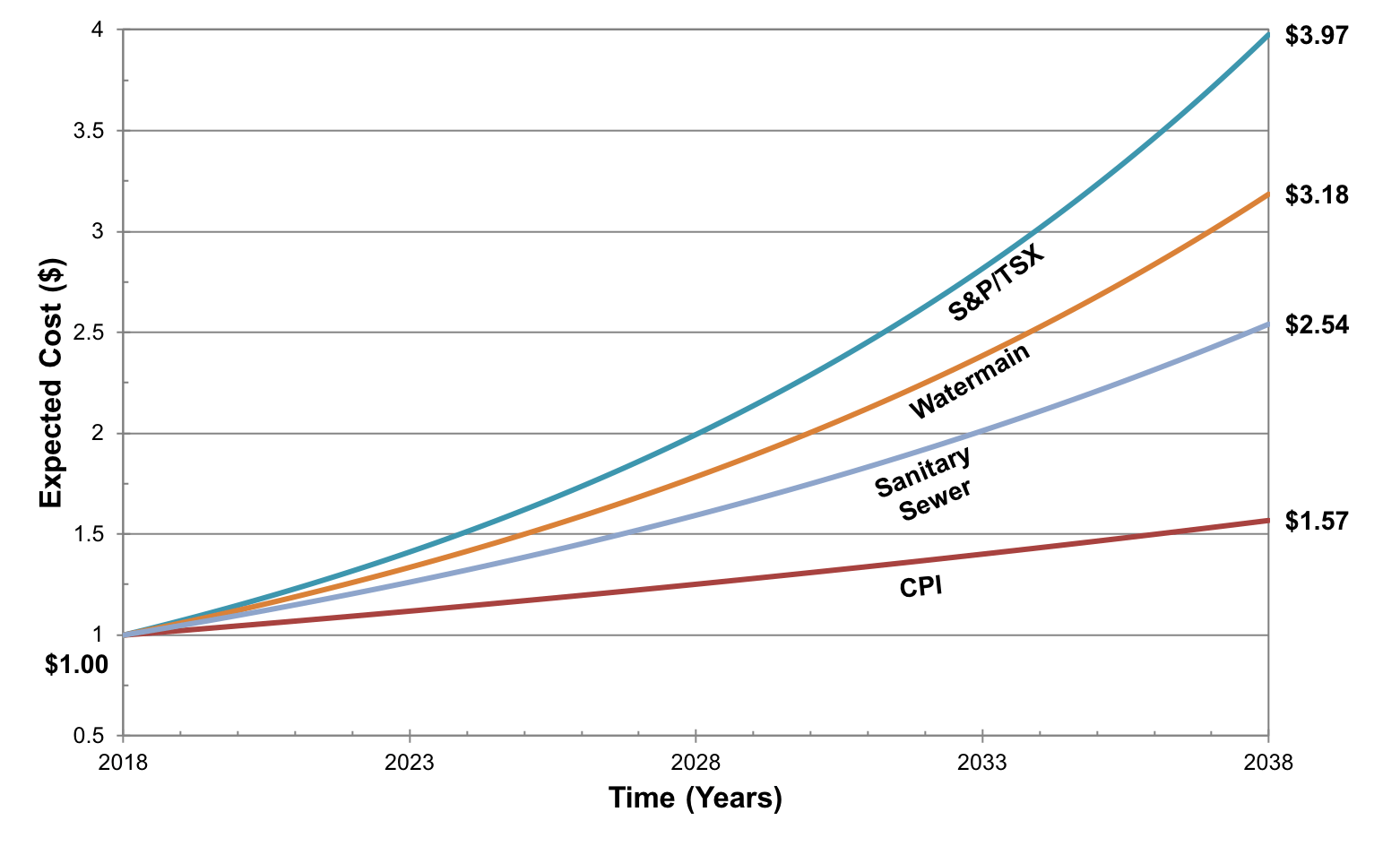case studies
data analyticsEstimating Inflation and Forecasting Construction Costs for Watermain and Sanitary Sewer Projects
Background
- The client is a Canadian municipality which manages both a watermain and sanitary sewer network.
- The municipality has maintained tender/bid summaries and contractor progress payments for watermain, sanitary sewer, storm sewer and road construction projects from 1981 to 2014.
- The municipality wanted to determine if costs presented on current tender/bid submissions are in line with historical costs and representative of a competitive market bid for watermain and sanitary sewer projects. They also wanted to improve the accuracy and reliability of construction cost forecasts.
Approach & Scope of Work
- Watermain and sanitary sewer unit costs are first calculated from historical tender/bid records. These unit costs were then scaled to a reference project.
- The watermain reference project was composed of 1m length of 150mm PVC pipe, one 150mm valve per 100m of pipe and one hydrant per 100m of pipe.
- The sanitary sewer reference project was comprised of 1m length of 375mm PVC pipe and one 1200mm maintenance hole of 5m depth per 75m of pipe.
- The time-sequence of unit costs for each reference project were fit with a financial model to estimate the inflation rate over a specified time interval.
- The utility used the estimated inflation rates, in conjunction with historical construction cost data, to examine current tender/bid submissions and to forecast construction costs at future design dates.
- Construction cost inflation rates were intermediate between the Consumer Price Index (CPI) and the S&P/TSX composite index. The interest rate premium above CPI reflects the markup that the contractors require to cover their construction risk.
Outcomes
- We use your tender/bid data to provide a defensible estimate in the inflation rate of watermain and sanitary sewer CapEx for your network. This allows you to budget accordingly.
- Our inflation index provides you with a construction-sector specific tender/bid appraisal, without the bias induced by proxy indices such as CPI.
- Deviation of submitted bid unit costs from your expected inflation rate can be indicative of imbalances in the supply/demand of construction projects in your local market. They can also provide insight into the bidding strategies of your local contractors.
WaterIAM
“Water innovation on tap”
© 2018 WaterIAM
.net
VISIT US
442 Tamarack Drive
Waterloo ON N2L 4H1
CONTACT US
+1 519 581 8835
info@tempwateriam.watsems.com
